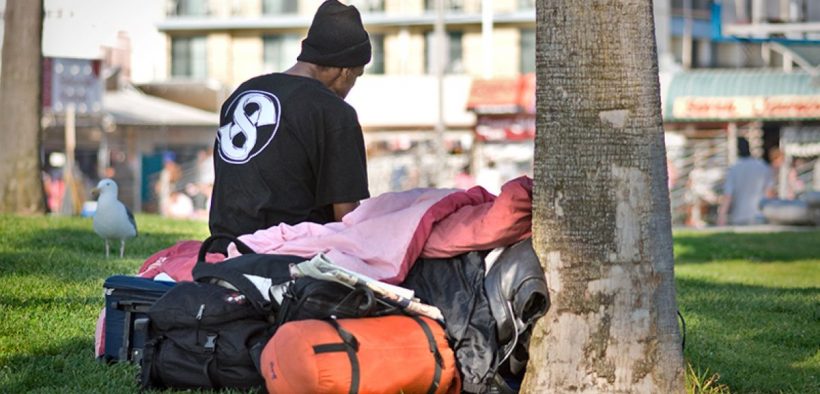Evictions Projected To Skyrocket In Coming Months

“Eviction is a very public experience that impacts the entire community. Your belongings are dumped on the street while your children and neighbors watch. Given the high degree of tension we are already experiencing, I don’t think that’s a dynamic we want to test.”
Housing experts and economists are warning of a looming housing “apocalypse” as eviction bans and unemployment benefits put in place at the start of the pandemic expire, prompting housing advocates to call for aggressive government intervention to prevent millions of households from eviction in the midst of civil unrest and a global pandemic.
Almost a third of U.S. households missed their housing payments this month. Renters, who are more likely to work in industries hard-hit by the the pandemic, are especially vulnerable; according to a study by the Covid-19 Eviction Defense Project, 20 percent of the 110 million Americans living in rental homes are at risk of eviction by the end of September. Importantly, an eviction moratorium is not a rent freeze, meaning tenants will be expected to pay months of accumulated debt as the eviction holds are lifted.
The looming threat of mass eviction has laid bare the country’s housing affordability crisis; according to the National Low Income Housing Coalition’s annual “Out of Reach” report released on Tuesday, full-time minimum wage workers are unable to afford rent in any U.S. state. According to HUD, there were already 567,715 Americans suffering homelessness in January 2019.
United Nations Special Rapporteur for Adequate Housing Leilani Farha argues that this crisis is due to Wall Street’s growing dominance of the residential real estate market.
“Housing has lost its social function and is seen instead as a vehicle for wealth and asset growth,” Farha told the Human Rights Council in 2017. “It has become a financial commodity, robbed of its connection to community, dignity and the idea of home.”
Farha warns that massive private equity firms like Blackstone, which took advantage of the 2008 recession by buying thousands of foreclosed homes and turning them to rental properties, will again be able to exploit the crisis in the absence of public intervention.
According to the Private Equity Stakeholder Project, Blackstone and other private equity landlords have already filed or advanced eviction notices.
While the coronavirus bailout has lavished public funds on corporations, lobbyists and the investor class in what American Prospect editor David Dayen calls a “$4.5 trillion slush fund“, the most vulnerable African American and Hispanic renters are expected to suffer the worst of the coming eviction crisis. Notably, one of the pandemic response’s chief architects, Treasury Secretary Steve Mnuchin, is himself known as the “foreclosure king” for his efforts to rush thousands of homeowners out of their homes after the subprime mortgage crisis.
“If you look at the covid pandemic and the health outcomes, the economic outcomes, that is hitting black and brown people very hard,” Peter Hepburn, a research fellow at Princeton University’s Eviction Lab, told the Washington Post. “And that is likely to be seen in the housing market as well.”
Despite making up just 13% of the population, Black Americans comprised 40% of people experiencing homelessness in 2019. The Post reports that a recent survey by the U.S. Census Bureau found 44 percent and 41 percent of adult Latino and black renters saying they had no or slight confidence they could pay their rent next month or were likely to defer payment with around 21 percent of white renters feeling the same.
As the eviction backlog makes its way through the courts, the convoluted legal process has hurt poor Americans without the means to navigate moratorium laws. “The things that the government has done to help with the pandemic have been great attempts,” attorney Christina E. Trejo told the Post. “There is no enforcement mechanism for it, there are no penalties, and it takes a lawyer to file to get any relief. But the poorest of the poor can’t get access to attorneys.”
Ongoing civil unrest sparked by the George Floyd’s murder in May would most likely intensify under a mass wave of evictions that disproportionately impacts people of color.
“Eviction is a very public experience that impacts the entire community. Your belongings are dumped on the street while your children and neighbors watch,” David Dworkin, president of the National Housing Conference, told the Post. “Given the high degree of tension we are already experiencing, I don’t think that’s a dynamic we want to test.”
The House of Representatives has passed emergency legislation to address the crisis which has so far stalled in the Republican-controlled Senate.















